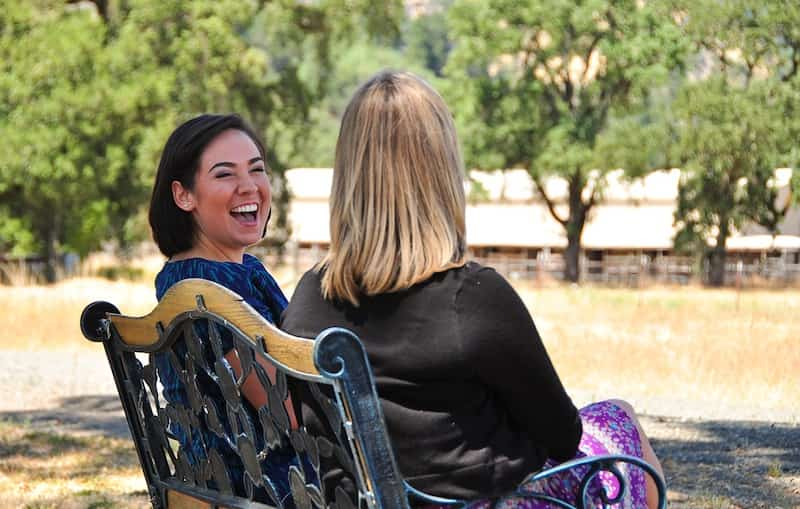The holiday season can be a time of joy, gratitude, and togetherness. Unfortunately, it can also be a time of stress, fear, and pressure. If you’re in recovery, the negative aspects of the holidays can threaten your sobriety. Here are a few tips to help you enjoy the season while remaining strong in your recovery.
Make a Plan
One advantage to the holidays is that there is a certain predictability to the season. You can’t prepare for every obstacle or challenge you’ll encounter, but most of the big events that occur at this time of year (such as office parties, family get-togethers, and gift exchanges) come with ample advance warning.
If you know that alcohol will be present at any of these gatherings, you can prepare ahead of time to ensure that your recovery isn’t threatened. If you know that an event will be attended by someone who has been a source of stress or antagonism in the past, you can practice your emotion regulation and conflict-avoidance skills ahead of time so that you’re ready.
You can share your plans with a close friend or trusted family member so that they can support your efforts to avoid triggers and retain your sobriety. If these individuals cannot accompany you to the event, you can at least ensure that they’re available to touch base with via a call or text messages if you need them.
Avoid Isolation
Even when you know that they’re coming, large gatherings and other holiday-related events can still be stressful. You don’t have to attend every get-together you’re invited to, but it’s important to resist any urges you may have to just hunker down by yourself until the season has passed.
When you need to step away from the crowds and take a breath, you should absolutely do so. But if you find yourself spending the majority of your time alone, that could be a sign that you’re not managing your stress in a healthy manner. If this occurs, contact a friend, your sponsor, or another member of your personal support network. Spending time with just one or two people can have a significant positive impact on your mental health and your continued recovery.
Remember: It’s not the number of people you’re spending time with that matters. It’s the quality of the connections you have with these individuals that can make all the difference.
Get Help
“Get Help” can sound a lot like “Avoid Isolation.” And yes, there is some overlap between the topics of this section and the previous one. But this issue is such an important part of a healthy year-round recovery plan that it merits a bit of extra emphasis as the holidays approach.
Getting help can span an array of behaviors, such as exchanging text messages with a trusted friend, attending a meeting, scheduling a session with a counselor, or reentering a treatment program. What these and so many other related options have in common is that they are essential reminders that you are not alone, that help is available, and that reaching out is a sign of strength, not an admission of weakness.
Having a friend accompany you to a party can turn that event from a potential minefield into an opportunity to relax and enjoy yourself. Consulting with a professional or sitting in on a few extra support group meetings can help you process your experiences and prevent any fears or misgivings from rising to the level that they threaten to undermine your sobriety.
If you do relapse, or if you feel that you’re in imminent danger of doing so, reentering treatment might be the best gift you can give yourself. There’s no single perfect type of help. What matters most is understanding your needs, being aware of your options, and accessing the support that’s right for you.
Don’t Be Afraid to Say No
Holiday-related stress comes in many forms. You may feel pressure to find the perfect gift for everyone on your list. You might be worried about your finances. Your job may be particularly challenging, because you’re trying to get more done in fewer days. And your social calendar might be in danger of overflowing with events that are sounding less and less like fun.
Never forget that, in the vast majority of cases, invitations are not obligations. So, don’t treat them as such. It’s unhealthy and counterproductive to neglect your own well-being because you’re worried about offending a friend or family member.
If you can’t (or don’t want to) participate in a holiday-related event, politely declining an invitation is no reason for shame or guilt. A respectful, “I’m sorry, but I’m not going to be able to make it this year,” should never be a problem. If someone can’t accept your polite refusal, you may want to consider their motivations and evaluate whether they are worthy of your continued friendship.
Eat, Sleep, & Exercise
It is very easy to eat too much, sleep too little, and abandon your exercise routine over the holiday season. There’s nothing wrong with enjoying a big meal or skipping a workout, but be sure that these rare exceptions don’t turn into habits. Proper nutrition, ample sleep, and appropriate exercise are the foundations on which your healthy recovery is built. Practicing proper self-care promotes physical strength and mental clarity, which can help you manage stress, respond to setbacks, and get through difficult situations in a safe and productive manner.
Maintaining a healthy diet, sleep, and exercise regimen also adds familiarity and predictability to your days. During a time of the year when your work and social schedules may become jumbled, it’s important to have healthy habits that can serve as positive behavioral touchstones to guide you through each day and week. Also, if you find yourself neglecting your self-care activities, this can serve as a warning that you may be at increased risk for relapse.
No one recovery plan is right for every person, and no single piece of advice or set of tips will apply to every situation. But if you plan ahead, avoid isolation, get help when you need it, set and maintain appropriate boundaries, and practice self-care, you’ll be in the best possible position to protect your sobriety and enjoy the holiday season.






















